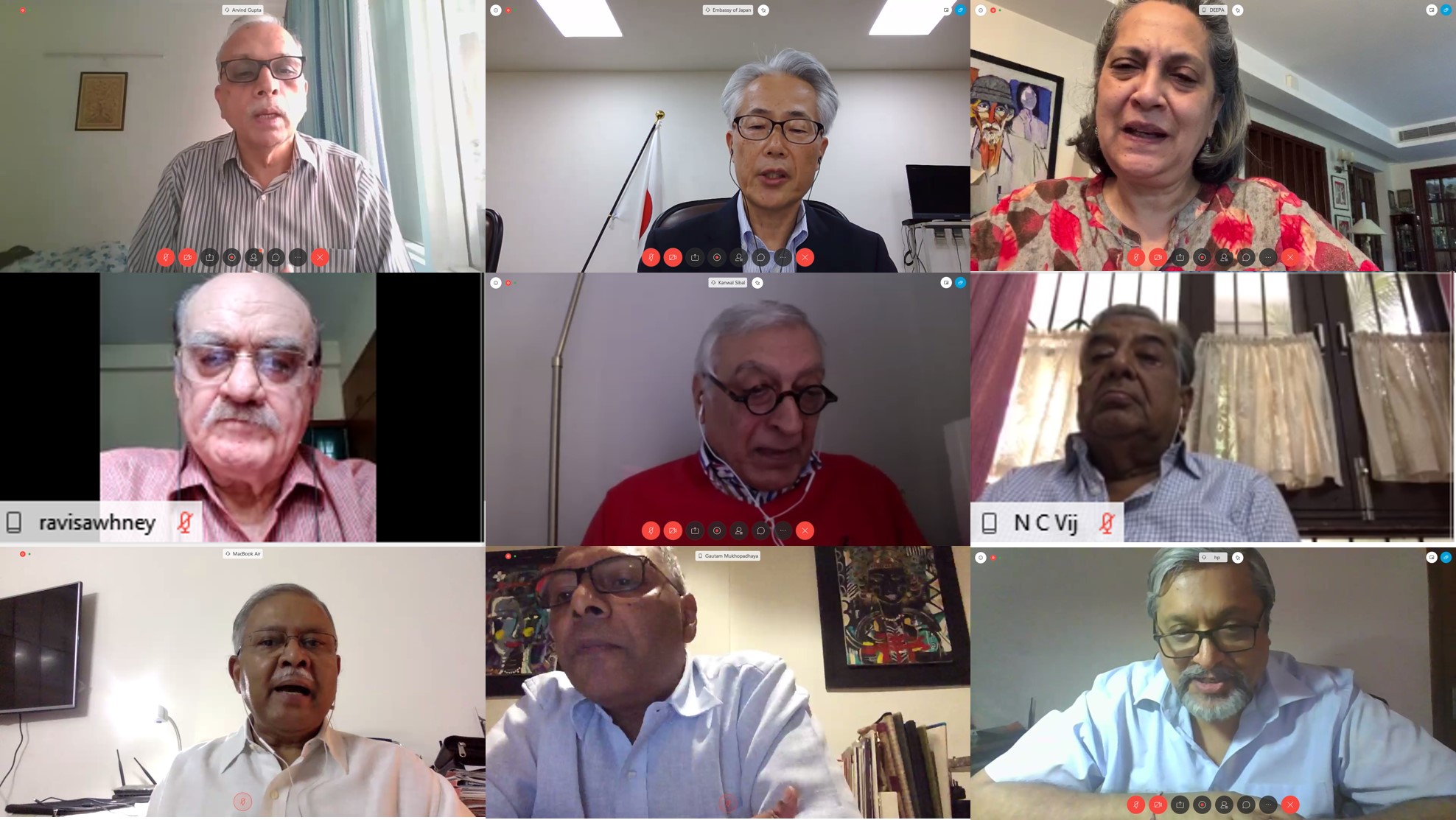

The Vivekananda International Foundation (VIF) hosted an online interaction with the Ambassador of Japan to India, H.E. Mr. Satoshi Suzuki on 29 June 2020. The one-and-a-half-hour interaction saw participation by many stalwarts from New Delhi’s strategic fraternity. The VIF and the Embassy of Japan have a long-standing cooperation, especially for the SAMVAD dialogue series that is warmly supported by both Prime Minister Abe and Prime Minister Modi.
Ambassador Suzuki’s talk and the ensuing discussions comprehensively covered the various contours and euphemisms in the bilateral relationship and regional perspectives. In the 20 years since Prime Minister Yoshiro Mori’s landmark visit to India in August 2000, the India-Japan relationship has strategically expanded to include a significant security dimension. In 2015, the bilateral relationship was upgraded to a “Special Strategic and Global Partnership”. There are numerous dialogues between the two countries ranging from an institutionalized annual summit, 2+2 ministerial dialogue, annual defense ministerial dialogue, Act East Forum etc. India and Japan have now also initiated bilateral exercises between all three components of their defence forces. The two countries are negotiating on the Acquisition and Cross-Servicing Agreement (ACSA). In 2018, a Bilateral Swap Arrangement of US$ 75 billion was also concluded. Japan is also essentially the largest foreign direct investor in India.

However, the bilateral ties are yet to attain full potential.. As both countries have large convergence in their strategic interests, it has become necessary to strengthen the various consultative mechanisms. Both countries frame their strategic outlooks under the larger Indo-Pacific narrative and are members of the quadrilateral grouping of democracies. They are also members of the G4 (comprising Brazil, Germany, India, and Japan) and support reform of the United Nations Security Council. Both sides share similar strategic apprehensions regarding China and oppose unilateral attempts to change the status quo which fundamentally undermine the rules-based international order.
Yet, with the new diverse challenges posed by the Covid-19 pandemic, issues of sustainable growth and development, food and water security, environmental protection, disaster mitigation, cyber security, clean energy etc. will only come to play a more significant role. While institutional structures exist for these issues, more substantive content and cooperation will have to be put in to result in more meaningful and concrete outcomes.There is also need for India to expedite its reform process and usher in more business and investor friendly policies. In this regard, Prime Minister Modi’s initiative for self-reliance seeks to build more resilience and expertise into the Indian economy. Overall, the India-Japan relationship has come a long way. And the leadership in both countries continues to place increasing prominence on the strategic intertwining that will ensure a more cooperative and collaborative partnership in coming time.
Links:
[1] https://www.vifindia.org/event/report/2020/july/01/interaction-with-ambassador-of-japan-to-india-h-e-mr-satoshi-suzuki
[2] https://www.vifindia.org/author/prerna-gandhi
[3] http://www.facebook.com/sharer.php?title=Interaction with Ambassador of Japan to India, H.E. Mr. Satoshi Suzuki&desc=&images=https://www.vifindia.org/sites/default/files/Mr. Satoshi Suzuki.jpg&u=https://www.vifindia.org/event/report/2020/july/01/interaction-with-ambassador-of-japan-to-india-h-e-mr-satoshi-suzuki
[4] http://twitter.com/share?text=Interaction with Ambassador of Japan to India, H.E. Mr. Satoshi Suzuki&url=https://www.vifindia.org/event/report/2020/july/01/interaction-with-ambassador-of-japan-to-india-h-e-mr-satoshi-suzuki&via=Azure Power
[5] whatsapp://send?text=https://www.vifindia.org/event/report/2020/july/01/interaction-with-ambassador-of-japan-to-india-h-e-mr-satoshi-suzuki